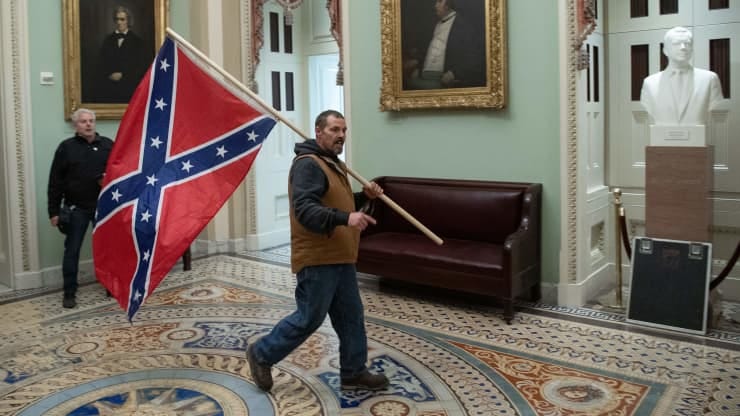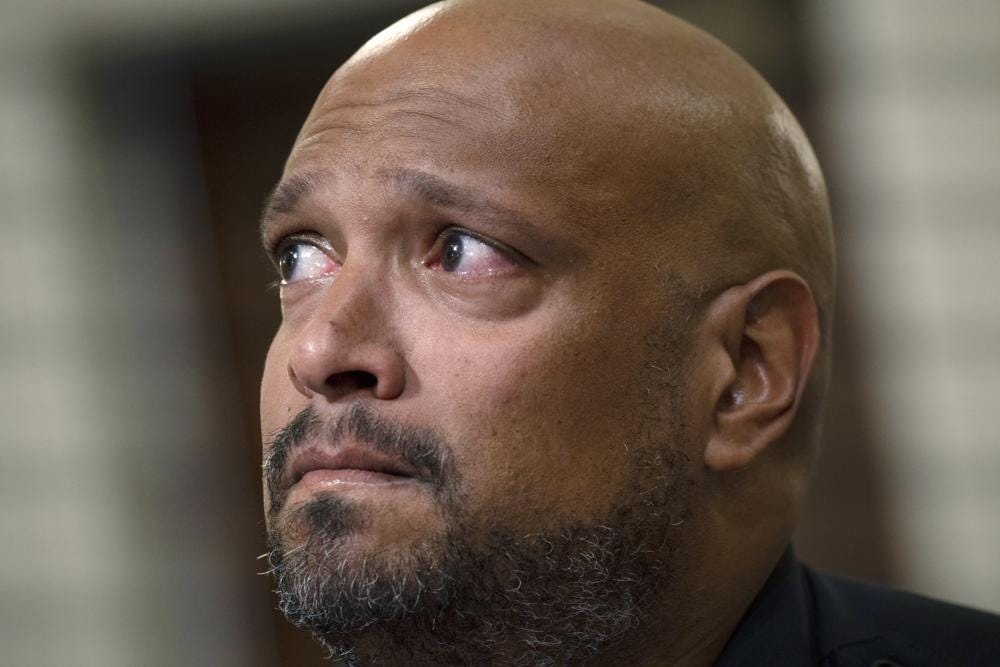Happy Wednesday, and happy New Year! I hope the start of the year has been kind to you so far.
I love the start of the year. It’s full of promises, resolutions, and predictions. We seem to simultaneously settle into our current selves and plan for the person we hope to be in a year.
As the late bell hooks said, “to be truly visionary, we have to root our imagination in our concrete reality while simultaneously imagining possibles beyond that reality.”
So, today’s Hot Takes section is a vision for what I hope to see this year, rooted in our current reality while also imagining and hoping for possibilities beyond our current conception.
I borrow the subtitle, “Through the Looking Glass,” from my friends over at ReFrame, who published their 2022 Narrative predictions a few weeks ago.
I believe it’s an ode to the sequel of Alice’s Adventures in Wonderland. Alice again journeys through a world of fantasy, this time by climbing through a mirror into a new world where everything is reversed.
In many ways, advocating for reparations is stepping through a looking glass. A world where a person’s race, neighborhood, or gender has no impact on future life outcomes. A world where discrimination doesn’t exist. A world where the typical face in power is not white and male.
It’s hard to imagine a world like this because it’s all that we know, but perhaps, in 2022, we can inch forward toward a world where reparations for Black Americans are a reality.
I also want to address that tomorrow is the one-year anniversary of the insurrection on the Capitol. The entire world watched as Donald Trump encouraged white supremacists, extremist groups, and unaffiliated but like-minded supporters of his to come together to undermine our democratic process and prevent President-Elect Joe Biden from taking office. What happened on January 6 was about many things, but racialized feelings were central to many of the rioters' motivations that day.
For example:
A man was pictured carrying a Confederate flag through the Capitol.
(Credit: Saul Loeb, AFP, Getty Images)
A Black Capitol Police officer was called the N-word after claiming he had voted for Biden.
(Credit: Andrew Caballero-Reynolds, Associated Press)
Rioters posed for pictures with a noose.
(Credit: Trevor Hughes, USA Today Network)
These are the same individuals who would likely resort to violence when reparations for Black Americans are eventually given. It should give us a hint of what we should be prepared for in this fight for a racially just world.
I am sending my condolences and prayers to the families of those who lost loved ones that day, particularly the families of the Capitol Hill police.
Eerily enough, their lives were taken by the same group of people who scream “Blue Lives Matter.”
Here are some articles you might want to check out:
This Inside Philanthropy article mentions Liberation Ventures and features my colleagues Allen Kwabena-Frimpong and Aria Florant, as well as many others within the reparations space, both from the funder and grantee side.
This New York Times article on how the insurrection affected Capitol Police officers on the days and weeks that followed.
This Philadelphia Inquirer article on how white supremacists use video games as a recruitment tool.
This Washington Post article details the $31.5 billion agreement between Canada and Indigenous groups to compensate those kidnapped and put into the child welfare system.
This Equal Justice Initiative blog detailing the work its Community Remembrance Project is doing in local communities to document the history of racial terror by unveiling narrative historical markers.
With radical love,
Trevor
National News
New York Times: The Capitol Police and the Scars of January 6
NPR: Teachers are on the front lines in January 6 culture war
Equal Justice Initiative: Community Groups Advance Racial Justice Through Public History Work
New York Times: House Panel Asks Sean Hannity of Fox News to Cooperate in January 6 Inquiry
Atlantic Council: After the Insurrection: How Domestic Extremists Adapted and Evolved the January 6 US Capitol Attack
Brookings Institute: Assessing the right-wing terror threat in the United States a year after the January 6 insurrection
Politico: GOP sees ‘huge red wave’ potential by targeting critical race theory
Washington Post: Biden’s student-debt pause invigorates the push for loan forgiveness
Business Insider: President Joe Biden asks student-loan borrowers to 'do their part' in preparing for payments to resume on May 1 as pressure for broad cancellation ramps up again
Washington Post: Prosecutors won a conviction in the killing of Daunte Wright. Is this good news or a dangerous precedent for racial justice?
NPR: Confederate monuments are removed as Americans consider how to remember the past
CNN: The battle that will define America in 2022 began in 1865
Smithsonian Magazine: Meet the Black Men Who Changed Lincoln’s Mind About Equal Rights
Regional News
Curbed: Richmond’s Robert E. Lee Statue Will Be Released From City Wastewater-Treatment Plant
The News & Observer: Black families are less likely than white families to own homes in NC. Here’s why.
Indy Star: 'Damning' report shows plummeting Black homeownership in Indy. Here's why.
OCPA Think: ‘LAND ACKNOWLEDGEMENT STATEMENTS’ ABOUND, BUT SOME SAY REPARATIONS NEEDED
Inside Higher Ed: Oklahoma Bill Would Ban Teaching Facts About Slavery
Sonoma Index-Tribune: More questions than answers on reparations for Californians
NJ.com: Reparations, immigrants’ rights and affordable housing top the 2022 wish list
The 74 Million: Black Parents Push Back Against Right-wing Attacks on ‘Critical Race Theory’
Philadelphia Inquirer: Hate crimes are soaring. White supremacists have a new recruitment tool: Video games.
Amsterdam News: Historic NYC Racial Justice Commission approves final ballot proposals to dismantle structural racism in city’s charter
WKYT: Confederate statue in Danville moved to museum in Meade County
International News
New York Times: In Remembering Tutu, South Africa Reckons With Lasting Challenges
Washington Post: Canada reaches $31.5 billion deal over Indigenous children put in foster care unnecessarily
The Globe and Mail: Archbishop Desmond Tutu was right: The Truth and Reconciliation Commission proved to be a miracle of the modern age
WNG: Virginia parents take critical race theory to court
Hot Takes
The below are my 2022 reparations predictions based on my intuition, conversations I’ve had with others who focus on reparations, and trends that I observed from the NYT analysis in the last edition.
It would be wonderful if a larger team could take on the challenge to engage in a narrative project similar to ReFrame’s to predict what’s to come based on “volume and velocity trends, conversational patterns, stories, content and messages, network influencers across time, using a combination of CrowdTangle analytics and Zignal Labs.
Predictions:
In fear of being seen as too radical, Democrats will shy away from the issue of reparations publicly: Political scientists have long argued that Midterm elections are relatively predictable and that the party in power usually loses seats. After the last election, we saw the public outcry from moderate Democrats, numerous political analysts, opinion columnists, and even celebrities that Democrats lost seats because of the “defund the police movement.” Many folks in Congress point to a USA Today/Ipsos poll that found that only 18 percent of survey respondents supported the defund movement, while 58 percent opposed it. While advocates will undoubtedly continue to apply the pressure, many Democrats will give in to the fear-mongering around “defund the police,” and shy away from reparations as a topic publicly.
More cities and states will develop reparations commissions and explore reparations at the local level: Most of the coverage in my NYT analysis was at the local level and mainly focused on Evanston and California. With the politics stalling HR 40, cities and states will begin/continue to explore what reparations in their communities through city and state legislation. Last year, a group of Mayors came together to form the Mayor’s Organizer for Reparations and Equity. According to its website, the group is comprised of 12 current mayors and one former Mayor. I believe this number will grow.
There will be a large increase in philanthropic funding for reparations advocacy: One of the benefits those in philanthropy enjoy is that they are not beholden to voters in the same way that elected officials are. An endowed foundation can back an effort like reparations or “defund” and deal with minimal ramifications. In this New York Times piece out today, Darren Walker, President of Ford Foundation, essentially shrugs at the notion that it was the wrong move to back organizations who organized around “defund the police.” The Inside Philanthropy piece noted at the top of the newsletter gives a great rundown of funders who have already backed the effort in some way. In 2022, I believe we’ll see more funders make significant commitments to organizations working on reparations advocacy and organizing their peers within philanthropy to do the same.
The anti-history movement will have its day in Court. The 1619 Project will continue to be used as a wedge: This is not a crazy prediction considering the ACLU and others filed a lawsuit in October of last year arguing that the Oklahoma anti-history law is unconstitutional. The law prohibits the teaching that “people, consciously or unconsciously, are inherently racist, sexist, or oppressive.” Florida Governor Ron DeSantis has been parading the “Stop W.O.K.E. Act,” which he said will stop any taxpayer dollar to teach “kids to hate our country or hate each other.” According to the Washington Post, the bill would allow parents to sue schools teaching critical race theory in the classroom. In New Hampshire, a group of parents filed a lawsuit against a recently passed anti-History law that mirrors the Oklahoma bill and Executive Order issued by Trump while he was in office. I think these lawsuits will set the stage for the conversation around critical race theory for the year. Even when they fail, anti-history advocates will continue to point to the 1619 project as an example of the type of material they do not want to be taught in schools.
The call for climate reparations will grow louder: The world will continue to warm, that is undeniable, with countries like Haiti, Cape Verde, and Fiji facing existential risks from rising sea levels and extreme weather according to experts. They’ve also estimated that over the next 30 years, the climate crisis will displace over 140 million people worldwide. According to Nomhle Senene, a climate activist from South Africa, climate reparations are financial resources to be paid by the Global North to the Global South as a means of addressing historical contributions that the Global North has made toward climate change. Though, in any reparations context, payment alone is usually not enough to address the structural harm caused. As described in this Foreign Policy article, climate reparations are “better understood as a systemic approach to redistributing resources and changing policies and institutions that have perpetuated harm.” A climate reparations approach then would see financial resources go to nations already being disproportionately affected by the climate crisis and seek to minimize displacement and implement just climate migration. In 2021, the topic was discussed at the United Nations Climate Change Conference, commonly referred to as Cop26, and covered in outlets such as The New York Times, Jacobin, The Guardian, WIRED, The Washington Post, and others. There have been notable efforts to address climate change in US domestic policy, like the Green New Deal and aspects of President Biden’s Build Back Better program. In 2022, I believe we’ll see more coverage of what the U.S., and other wealthy nations who have emitted the highest amount of greenhouse gases, owe to the Global South.






